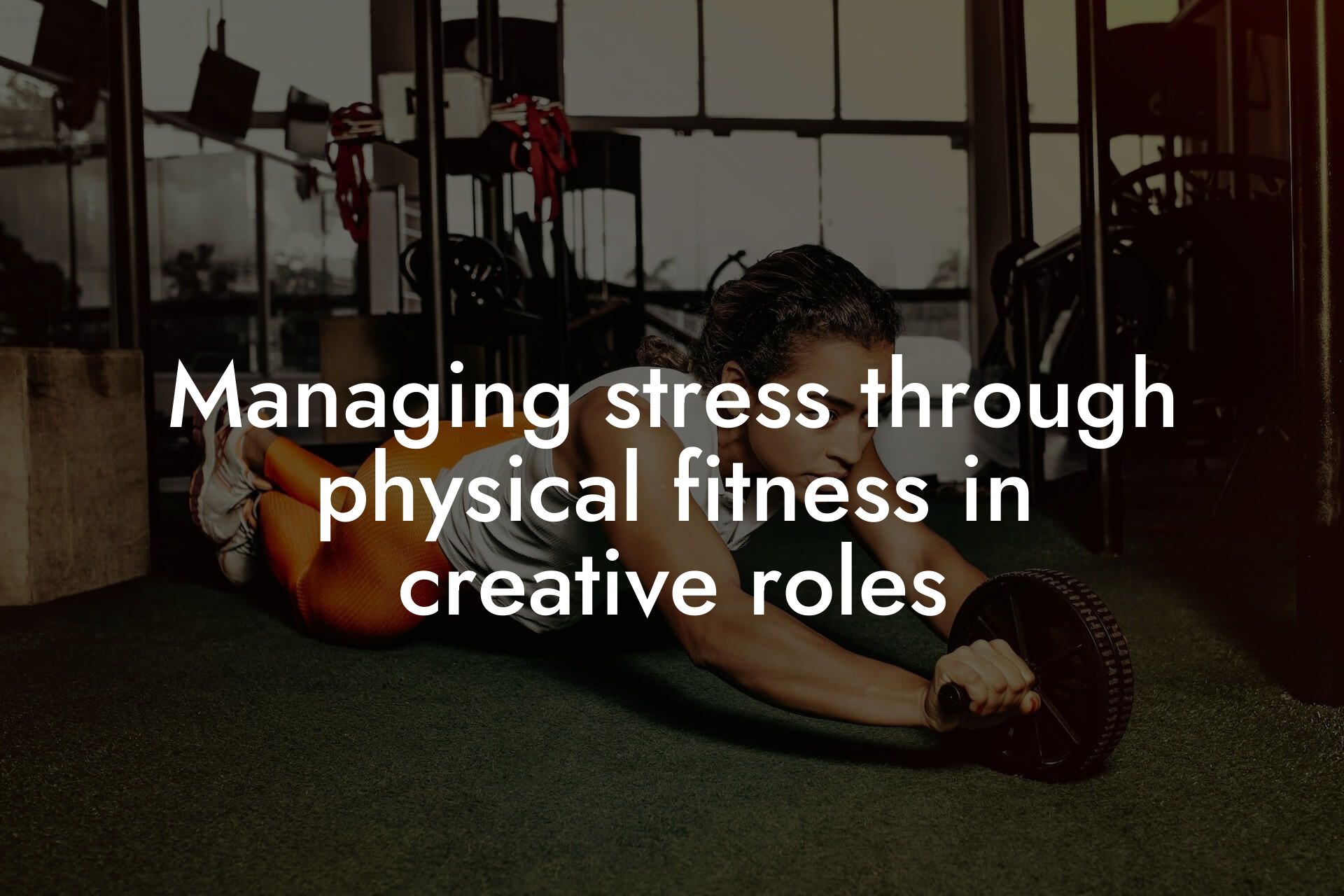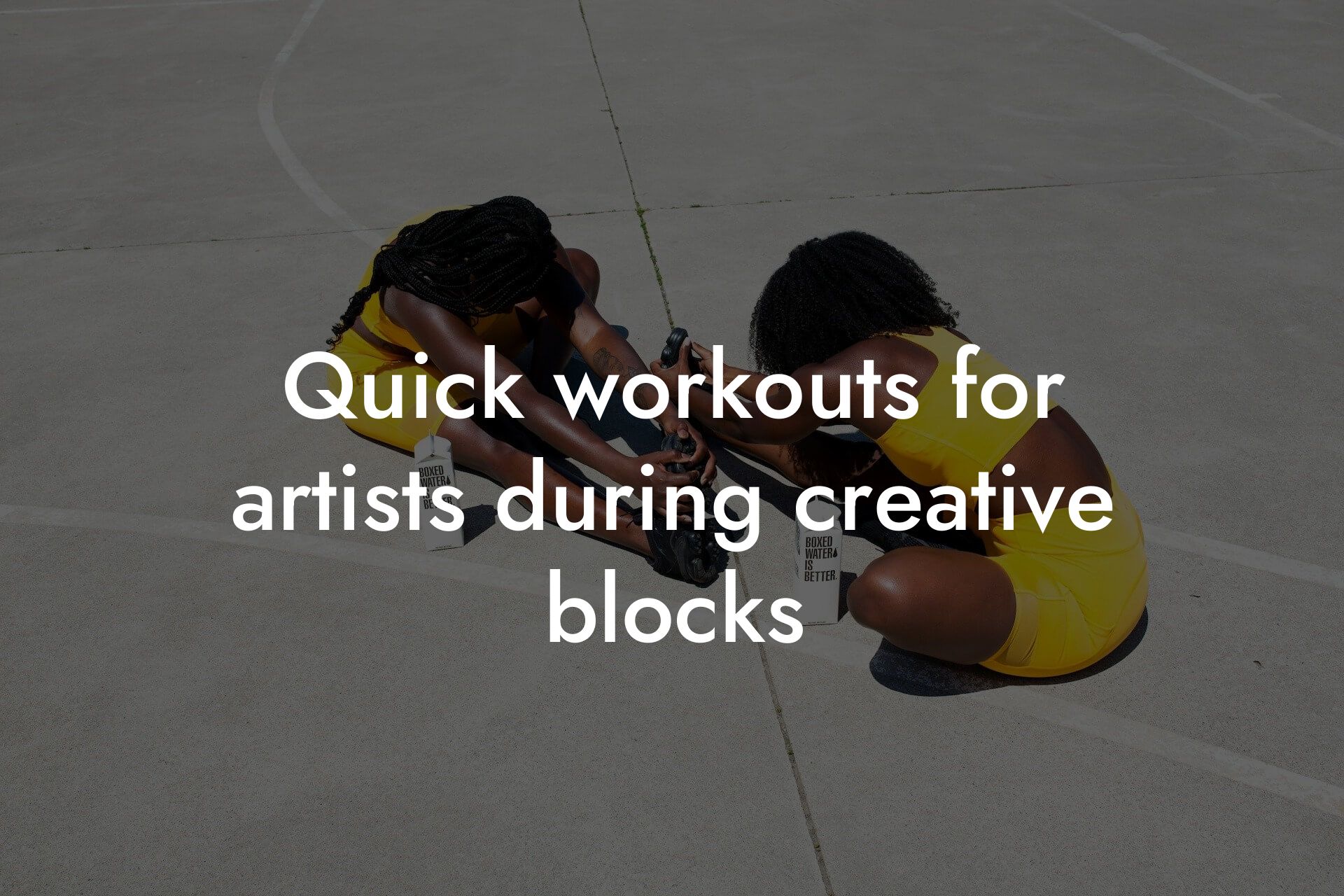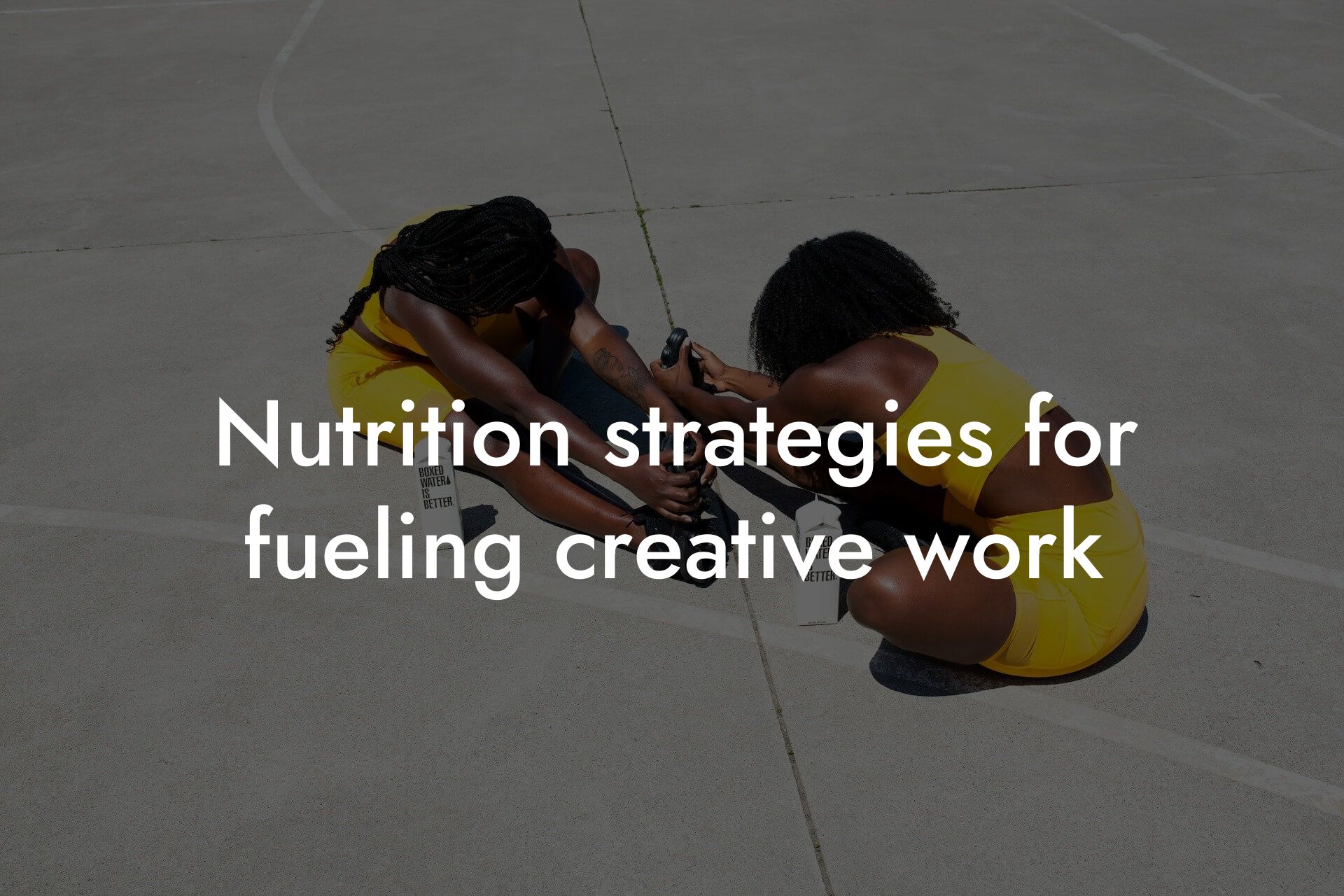As high-earning professionals, you understand the importance of maintaining a sharp mind and a healthy body to stay ahead in your industry. While many of us focus on our mental well-being and professional development, physical fitness is often overlooked as a crucial component of overall success. In this article, we'll explore the vital role physical fitness plays in maintaining creative energy, and how incorporating regular exercise into your routine can take your business to the next level.
Table of Contents
- What is Creative Energy?
- The Science Behind Physical Fitness and Creative Energy
- How Physical Fitness Boosts Creative Energy
- The Benefits of Regular Exercise for High-Earning Professionals
- How to Incorporate Physical Fitness into Your Busy Schedule
- Measuring the Impact of Physical Fitness on Creative Energy
- Get Started with Tano Performance Group
- Frequently Asked Questions
What is Creative Energy?
Creative energy is the spark that drives innovation, problem-solving, and artistic expression. It's the ability to think outside the box, come up with novel solutions, and bring new ideas to life. When we're mentally and physically exhausted, our creative energy dwindles, making it challenging to tackle complex tasks and make meaningful contributions to our work. As professionals, it's essential to maintain a high level of creative energy to stay competitive and achieve our goals.
The Science Behind Physical Fitness and Creative Energy
Research has shown that regular exercise has a profound impact on cognitive function, including creativity, focus, and mental clarity. Exercise stimulates the production of neurotrophic factors, which are proteins that promote the growth and development of new neurons in the brain. This, in turn, enhances our ability to think creatively, make connections, and solve problems. Additionally, exercise has been shown to increase the production of dopamine, a neurotransmitter that plays a crucial role in motivation, pleasure, and reward processing.
How Physical Fitness Boosts Creative Energy
Physical fitness has a direct impact on our creative energy levels by:
- Increasing blood flow and oxygenation to the brain, leading to improved cognitive function and focus.
- Reducing stress and anxiety, which can stifle creativity and innovation.
- Enhancing mood and overall sense of well-being, making us more receptive to new ideas and inspiration.
- Improving sleep quality, which is essential for memory consolidation, problem-solving, and creative thinking.
The Benefits of Regular Exercise for High-Earning Professionals
As a high-earning professional, incorporating regular exercise into your routine can have a significant impact on your career and personal life. Exercise can:
- Increase productivity and efficiency, allowing you to tackle more tasks and achieve your goals.
- Enhance your ability to think strategically and make informed decisions.
- Improve your communication skills, making you a more effective leader and collaborator.
- Boost your confidence and self-esteem, helping you to take on new challenges and pursue opportunities.
How to Incorporate Physical Fitness into Your Busy Schedule
We understand that as high-earning professionals, your time is valuable and limited. However, incorporating physical fitness into your routine doesn't have to be time-consuming or overwhelming. Here are some tips to get you started:
- Start small: Begin with short, high-intensity workouts (20-30 minutes) and gradually increase duration and frequency.
- Find activities you enjoy: Engage in physical activities that bring you joy, whether it's running, swimming, cycling, or group fitness classes.
- Schedule it in: Treat exercise as a non-negotiable part of your daily routine, just like meetings and appointments.
- Invest in a personal trainer or fitness coach: A professional can help you create a customized workout plan that suits your lifestyle and goals.
Measuring the Impact of Physical Fitness on Creative Energy
At Tano Performance Group, we understand the importance of tracking progress and measuring the impact of physical fitness on creative energy. Our state-of-the-art DEXA machine provides a comprehensive body assessment, giving you valuable insights into your body composition, bone density, and overall physical fitness. By tracking your progress and making data-driven decisions, you can optimize your workout routine and achieve your goals faster.
In conclusion, physical fitness plays a vital role in maintaining creative energy, which is essential for high-earning professionals to stay ahead in their industry. By incorporating regular exercise into your routine, you can improve your cognitive function, boost your mood, and increase your productivity. Remember, physical fitness is not a luxury, it's a necessity for achieving success and living a fulfilling life. Take the first step today and invest in your physical fitness – your business and personal life will thank you.
Get Started with Tano Performance Group
Ready to take your physical fitness and creative energy to the next level? Contact us at Tano Performance Group to schedule a comprehensive body assessment using our state-of-the-art DEXA machine. Our team of experts will work with you to create a personalized fitness plan tailored to your goals and lifestyle. Take the first step towards unlocking your full potential and achieving the success you deserve.
Frequently Asked Questions
What is the connection between physical fitness and creative energy?
Research has shown that there is a strong correlation between physical fitness and creative energy. Regular exercise has been proven to increase cognitive function, boost mood, and enhance overall brain health, all of which are essential for maintaining creative energy. By incorporating physical fitness into your daily routine, you can expect to see an improvement in your ability to think outside the box, generate new ideas, and stay focused and motivated.
How does exercise impact brain function and creativity?
Exercise has been shown to increase blood flow to the brain, which can lead to improved cognitive function and enhanced creativity. Additionally, exercise has been found to promote the growth of new neurons and neural connections, which can improve problem-solving skills and overall brain health. This can result in increased creativity, improved focus, and enhanced mental clarity.
What are some exercises that can help boost creative energy?
Any form of exercise can help boost creative energy, but some exercises are more effective than others. Aerobic exercises such as running, cycling, and swimming are great for improving cardiovascular health and increasing blood flow to the brain. Resistance training, such as weightlifting, can help improve focus and concentration. Yoga and Pilates can also be beneficial for improving flexibility, balance, and overall mental well-being.
How often should I exercise to see an improvement in creative energy?
The frequency and intensity of exercise needed to see an improvement in creative energy can vary depending on individual factors such as age, fitness level, and overall health. However, a general rule of thumb is to aim for at least 30 minutes of moderate-intensity exercise per day, three to four times per week. It's also important to incorporate rest days and active recovery into your routine to allow your body and mind to recharge.
Can exercise really help reduce stress and anxiety?
Yes, exercise is a natural stress-reliever and can help reduce anxiety. Physical activity has been shown to decrease the production of stress hormones such as cortisol and adrenaline, while also releasing endorphins, which are natural mood-boosters. Regular exercise can also improve sleep quality, which is essential for managing stress and anxiety.
How does physical fitness impact mental clarity and focus?
Physical fitness has a direct impact on mental clarity and focus. Regular exercise has been shown to improve blood flow to the brain, which can lead to improved cognitive function and enhanced mental clarity. Exercise has also been found to increase the production of neurotransmitters such as dopamine and serotonin, which are essential for regulating focus and motivation.
What role does nutrition play in maintaining creative energy?
Nutrition plays a critical role in maintaining creative energy. A diet rich in whole foods, fruits, vegetables, and lean proteins can provide the necessary fuel for optimal brain function and creativity. Additionally, staying hydrated by drinking plenty of water is essential for maintaining focus and mental clarity.
Can physical fitness really improve overall brain health?
Yes, physical fitness has been shown to have a profound impact on overall brain health. Regular exercise has been found to reduce the risk of age-related cognitive decline, improve memory and learning, and even reduce the risk of neurodegenerative diseases such as Alzheimer's and Parkinson's.
How does exercise impact mood and overall well-being?
Exercise has a profound impact on mood and overall well-being. Regular physical activity has been shown to reduce symptoms of depression and anxiety, improve sleep quality, and even increase self-esteem and confidence. This can result in improved overall well-being and a greater sense of happiness and fulfillment.
What are some common barriers to incorporating physical fitness into a busy schedule?
Some common barriers to incorporating physical fitness into a busy schedule include lack of time, lack of motivation, and lack of access to fitness facilities or equipment. However, there are many ways to overcome these barriers, such as finding exercises that can be done at home or on the go, scheduling workouts into your daily routine, and finding a workout buddy or accountability partner.
How can I stay motivated to exercise regularly?
Staying motivated to exercise regularly can be challenging, but there are several strategies that can help. These include setting specific and achievable fitness goals, finding an exercise routine that you enjoy, tracking progress and celebrating small victories, and finding a workout buddy or accountability partner.
What are some common misconceptions about physical fitness and creative energy?
One common misconception is that physical fitness is only important for physical health, and has no impact on mental health or creativity. Another misconception is that you need to be a "natural athlete" to benefit from exercise, or that you need to spend hours at the gym to see results. However, the truth is that anyone can benefit from physical fitness, regardless of age, fitness level, or ability.
How can I incorporate physical fitness into my daily routine?
Incorporating physical fitness into your daily routine can be as simple as taking a short walk during your lunch break, doing a few jumping jacks during commercial breaks while watching TV, or taking the stairs instead of the elevator. You can also schedule workouts into your daily routine, such as waking up early to go for a run or doing a quick workout at home before dinner.
What are some benefits of incorporating physical fitness into a high-stress profession?
Incorporating physical fitness into a high-stress profession can have numerous benefits, including improved focus and concentration, reduced stress and anxiety, and increased productivity and creativity. Physical fitness can also improve overall well-being, leading to increased job satisfaction and reduced burnout.
How does physical fitness impact bone density and overall health?
Physical fitness has a profound impact on bone density and overall health. Regular exercise, especially weight-bearing and resistance exercises, can help improve bone density, reducing the risk of osteoporosis and fractures. Exercise can also improve cardiovascular health, reduce the risk of chronic diseases such as diabetes and heart disease, and even reduce the risk of certain types of cancer.
What are some exercises that can help improve body composition and physique?
Exercises that can help improve body composition and physique include resistance training, such as weightlifting and bodyweight exercises, as well as high-intensity interval training (HIIT). These types of exercises can help increase muscle mass, reduce body fat, and improve overall physique.
How does physical fitness impact self-confidence and self-esteem?
Physical fitness can have a profound impact on self-confidence and self-esteem. Regular exercise can improve body composition, leading to increased confidence and self-esteem. Exercise can also improve overall mental health, reducing symptoms of anxiety and depression, and even improving sleep quality.
What are some common myths about physical fitness and creative energy?
One common myth is that physical fitness is only important for physical health, and has no impact on mental health or creativity. Another myth is that you need to be a "natural athlete" to benefit from exercise, or that you need to spend hours at the gym to see results. However, the truth is that anyone can benefit from physical fitness, regardless of age, fitness level, or ability.
How can I track my progress and stay accountable?
There are many ways to track progress and stay accountable, including using a fitness tracker or wearable device, tracking workouts and progress in a journal or log, and finding a workout buddy or accountability partner. You can also set specific and achievable fitness goals, and celebrate small victories along the way.
What are some resources available for high-earning professionals looking to improve their physical fitness?
There are many resources available for high-earning professionals looking to improve their physical fitness, including personal trainers, fitness coaches, and online workout programs. You can also find fitness classes and workshops in your local area, or join a fitness community or gym.
How can I make physical fitness a priority in my busy schedule?
Making physical fitness a priority in your busy schedule can be challenging, but there are several strategies that can help. These include scheduling workouts into your daily routine, finding exercises that can be done at home or on the go, and finding a workout buddy or accountability partner. You can also prioritize self-care and make time for activities that bring you joy and fulfillment.
Here are some related articles you might love...
- Managing stress through physical fitness in creative roles
- Quick workouts for artists during creative blocks
- Nutrition strategies for fueling creative work
- How artists can stay fit during long studio sessions
- Balancing artistic work with personal fitness goals
- How to maintain bone density in sedentary artistic jobs
- How DEXA scans can benefit creative professionals
- The impact of body composition on creative performance
- The connection between physical health and creative output
Zak Faulkner
Zak Faulkner is a leading authority in the realm of physical health and body composition analysis, with over 15 years of experience helping professionals optimise their fitness and well-being. As one the experts behind Tano Performance Group, Zak has dedicated his career to providing in-depth, science-backed insights that empower clients to elevate their physical performance and overall health.
With extensive knowledge of DEXA technology, Zak specializes in delivering comprehensive body assessments that offer precise data on body fat, muscle mass, bone density, and overall physique. His expertise enables individuals to make informed decisions and achieve their fitness goals with accuracy and confidence. Zak’s approach is rooted in a deep understanding of human physiology, combined with a passion for helping clients unlock their full potential through personalised strategies.
Over the years, Zak has earned a reputation for his commitment to excellence, precision, and client-focused service. His guidance is trusted by top professionals who demand the best when it comes to their health. Whether advising on fitness programs, nutritional strategies, or long-term wellness plans, Zak Faulkner’s insights are a valuable resource for anyone serious about taking their health and fitness to the next level.
At Tano Performance Group, Zak continues to lead our Content Team revolutionising how professionals approach their physical health, offering unparalleled expertise that drives real results.




